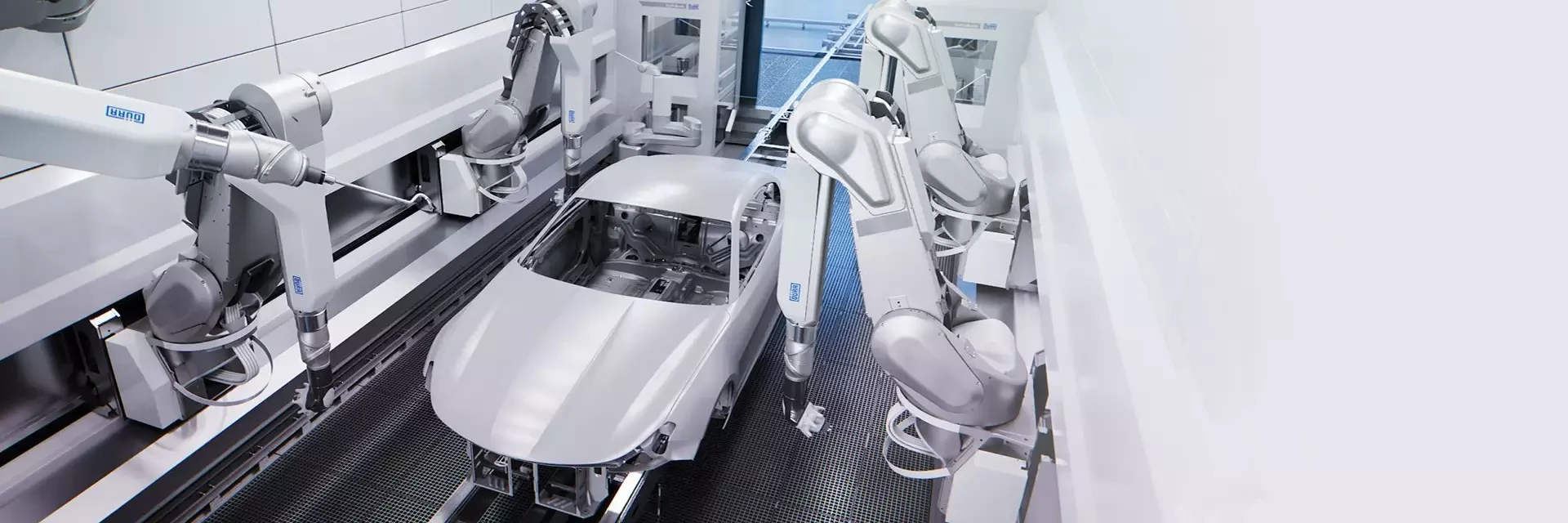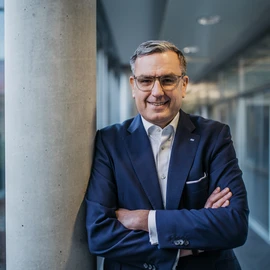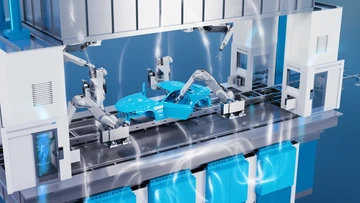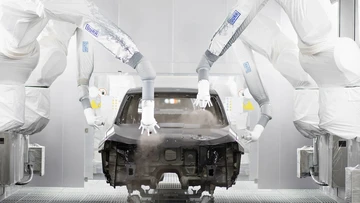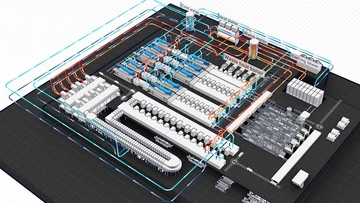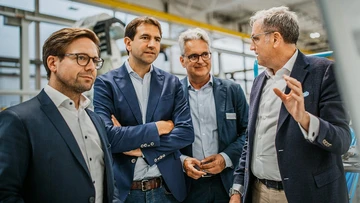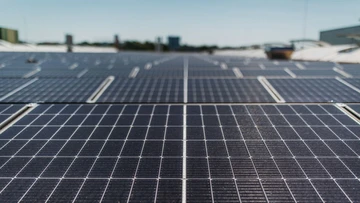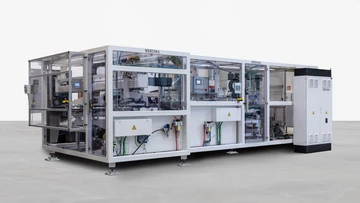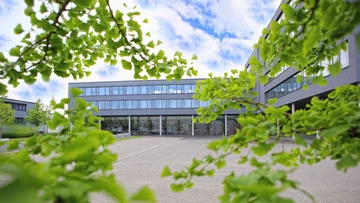“We can already build CO2-free paint shops for our customers today,” says Dr. Jochen Weyrauch, CEO of Dürr AG. To this end, the company has a two-pronged approach: Firstly, it is offering systems that can be powered by green electricity instead of natural gas. Secondly, it is focusing on using energy even more efficiently. The automotive industry is benefiting from this in multiple ways: Manufacturers are lowering their energy costs and can operate their paint shops sustainably, thus enabling them to achieve their climate targets more quickly. “We are helping our customers to fulfill the decarbonization pledge,” states Dr. Jochen Weyrauch.
When it comes to decarbonization, the paint shop is a particularly important area in automotive production. This is because the painting process accounts for over 40% of the energy an automaker requires for its plants. Some of the energy-intensive stages include curing car bodies and air-conditioning the paint booths. Thanks to its new technologies, Dürr can make a correspondingly high contribution toward lowering greenhouse gas emissions in the automotive industry.
Dürr is currently building an almost CO2-free paint shop for a German automaker. The paint shop’s oven and exhaust-air purification systems are heated entirely using electricity from renewable energy sources. In addition, Dürr is using the intelligent EcoQPower energy network for the first time. It ensures that the heat and cold generated during plant operation are not lost but directed where they can be used for heating and cooling. At the heart of this combined heating and cooling system are heat pumps, water circuits, and intelligent software.
Sustainable manufacturing processes for sustainable products
Systems optimized for energy and emissions are often installed in factories for electric cars. After all, manufacturers and buyers want their non-CO2-producing cars to be built in a way that generates low emissions. The Dürr Group has gone further in preparing itself for electromobility and is developing special technologies for building e-cars. Examples include test stands for electric motors and manufacturing technology for battery cells. In 2022, order intake relating to production systems for e-cars grew by over 40% to more than €1.1 billion. Orders from the battery sector exceeded the €100 million mark for the first time, because Dürr is delivering solvent recovery systems to several new gigafactories in Europe.
“We are placing our strategic focus on technologies for manufacturing sustainable products for a largely CO2-free society,” says CEO Dr. Jochen Weyrauch. “In doing so, we are not only keeping an eye on electromobility and the automotive industry. We are also supporting the transformation toward climate-friendly products in other sectors through suitable manufacturing processes.” The Group’s subsidiary HOMAG, for example, is expanding its business in production systems for climate-friendly timber houses. In 2022, the automation specialist Teamtechnik, which has been part of the Dürr Group since 2021, received its largest order to date in production systems for solar modules. Dürr is also on a growth trajectory in environmental technology, for instance with exhaust-air purification systems for chemical and pharmaceutical production.
Climate footprint improved: CO2 emissions 40% lower than in 2021
The Dürr Group has also been investing in climate-friendly technologies at its own sites. In 2022, factory and office buildings in Germany, China, and Spain were equipped with photovoltaic systems. In many places, charging stations for electric company cars went into operation. The company’s sites in Germany, India, Canada, Mexico, Brazil, and the United States, switched to green electricity, with all other sites due to follow in 2023. Oil and gas consumption sank by roughly 10% in 2022. Dr. Jochen Weyrauch states: “The guiding theme of our climate strategy is: investing instead of compensating. We prefer to invest in climate-friendly technologies and energy rather than in compensation certificates, which sometimes have a dubious reputation.”
With its climate investments and better energy mix, the Group is on the right track toward achieving its climate strategy targets. In 2022, greenhouse gas emissions directly attributable to the company were a good 40% lower than in the previous year (Scope 1 and 2). Compared to 2019, the reduction amounted to around 50%. The Group thus exceeded its 40% target and has already achieved most of the 70% reduction it aims to reach by 2030.
The energy intensity of the operating business has also improved significantly. In 2022, the amount of energy required to generate sales of one million euros was 14% lower than in the previous year. This means the Group’s energy consumption only increased by around 5%, while sales grew by 22%.
